Tunisian President Beji Caid Essebsi passed away today at age 92. The first democratically elected president in Tunisia, Essebsi laid the groundwork for the country’s second republic amid a region of turmoil in the wake of the Arab Spring.
But he leaves a mixed legacy. A polarizing figure, Essebsi was hailed by his supporters for his years of service to Tunisia, including shepherding the country to democracy. But to his opponents, Essebsi was a remnant of the ousted regime who undermined the democratic process.
Essebsi was a statesman with decades of experience, having served as minister of interior (1965-69), defense (1969-70), and foreign affairs (1981-86) under President Habib Bourguiba, as well as president of the Chamber of Deputies (1990-91) under President Zine al-Abidine Ben Ali.
After Ben Ali’s ouster in 2011, Essebsi was pulled out of retirement and chosen as a consensus prime minister to shepherd the country to its first democratic elections in 2011. After those elections were won by a moderate Islamist party, Ennahda, Essebsi assembled a range of political forces to oppose Ennahda, calling in 2013 for the dissolution of the very assembly he helped elect.
Ultimately, Essebsi chose to put country over party and negotiate with Ennahda’s president, Rached Ghannouchi, during a series of meetings beginning in August 2013. Those discussions led to a national dialogue and eventually a new constitution passed by consensus. Essebsi thus played a pivotal role in saving Tunisia’s democracy during that 2013 crisis—but a crisis, his detractors point out, that he first helped create.
Essebsi subsequently won the 2014 presidential elections, becoming Tunisia’s first democratically elected president. Surprising even his own party, he chose to form a grand, national unity government with his former rival, Ennahda, a move that some say saved Tunisia from civil war and won it international praise as a model of consensus and tolerance.
Essebsi’s tenure as president, however, was rocky. Tunisia was struck by three major terror attacks in urban areas in 2015. Essebsi deserves tremendous credit for restoring security, though it came at the expense of security sector reform. Meanwhile, the economy has continued to deteriorate, despite Essebsi’s efforts to revise the investment code and follow International Monetary Fund (IMF) reforms.
Essebsi had hoped that his legacy would center around advances in women’s rights. He had proposed to grant women equal inheritance rights to men, a first in the Arab world and a reform that would have built on the progressive Personal Status Code initiated by his mentor, Habib Bourguiba. However, Essebsi was unable to corral sufficient support for equal inheritance even among his own party.
Instead, Essebsi’s presidency may be remembered most for his attempts to pursue reconciliation with the remnants of the Bourguiba and Ben Ali regimes. In 2017, Essebsi pushed through a reconciliation law that provided amnesty for corrupt officials from former regimes, undercutting the work of the Truth and Dignity Commission. He also refused the Commission’s request to promulgate an official apology for the 62,000 human rights abuses it documented under past regimes—including some for which he was complicit in the 1960s.
His legacy as president has also been tainted by his favoritism for his son, Hafedh, who he sought to place in his stead as head of his party, Nidaa Tounes. The result was a major fracturing of the party, and an exodus of members of parliament took it from first to third place in parliament and undermined his own goal of forming a political counterweight to Ennahda.
In short, Essebsi leaves behind a mixed legacy, simultaneously directing but also disrupting his country’s transition to democracy. He strove to include the ancien regime in the political process, even if it posed a threat to democracy. That spirit of inclusion was embodied also in his final act as president: refusing to ban several controversial, populist candidates from the 2019 elections. Time will tell whether that inclusionary gesture will be implemented, and whether it will preserve or doom Tunisia’s young democracy. But what is certain is that Tunisia would not be the same without Essebsi.
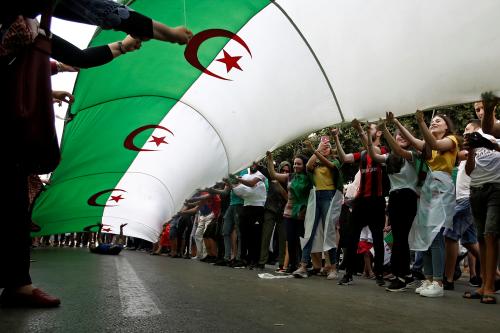
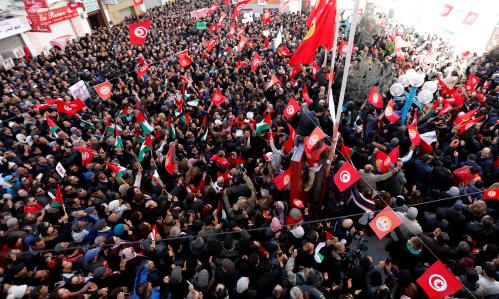
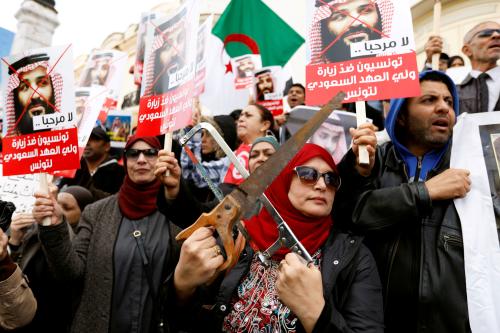
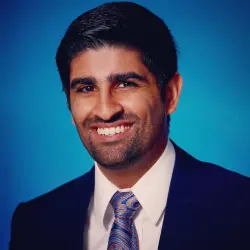
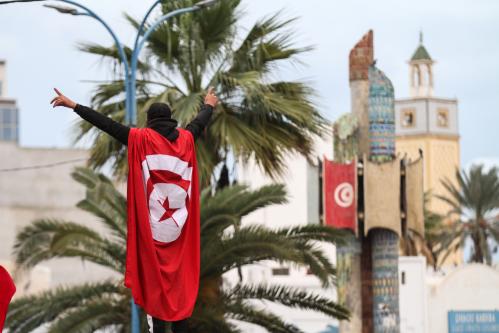
Commentary
Essebsi, founding father of Tunisia’s second republic, leaves mixed legacy
July 25, 2019